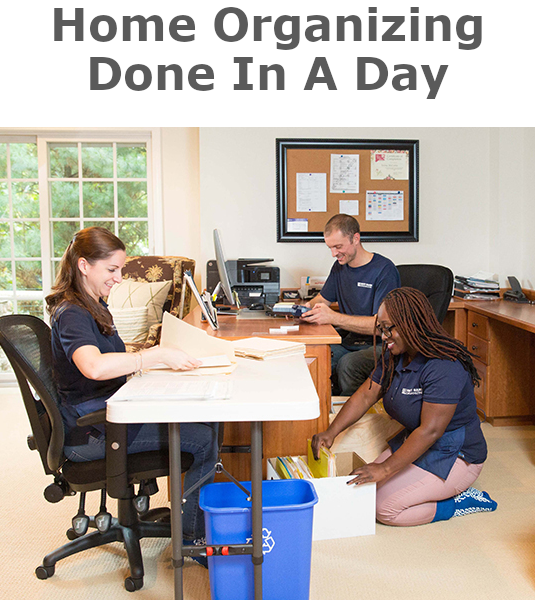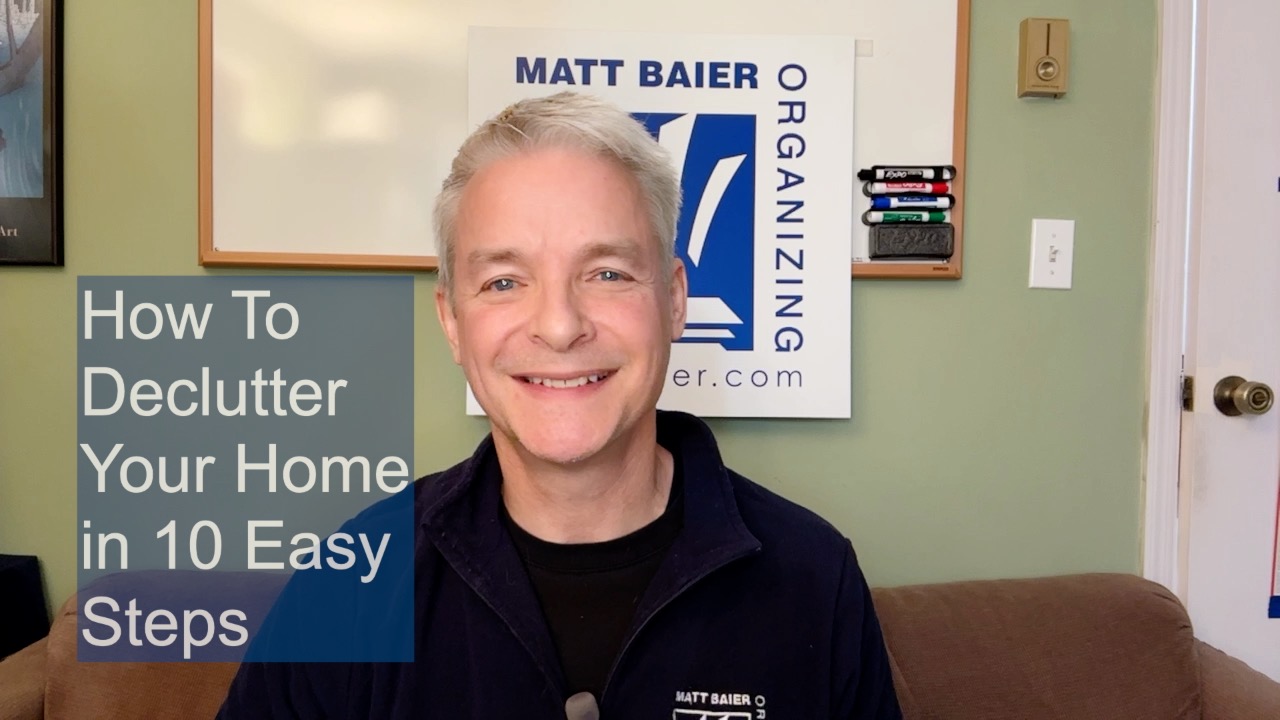Action Feeds on Clarity
Just as a doctor asks several key questions before making a diagnosis, so does a professional organizer. In a home office, one of those questions is “where is your trash?” If the client proudly points to a decorative little bin that is overflowing with paper, then I know we are looking at some easy structural solutions and some larger conceptual challenges.
The conceptual challenges have to do with a complete rethinking of how we organize things today. We may be taught “a place for everything and everything in its place,” but in this fast accumulating world of 2013, that doesn’t really cut it. Effective organizing systems must be built on action. Circulation prevents accumulation.
Tasks need to happen in a series of reliable stages and the more often you have to do a task, the easier it should be. Frequency merits facility. What makes these tasks as easy as possible is absolute clarity with the structures you have and the habits you exercise. It’s important to break these habits into the simplest stages and not try to do everything at once. Here are some examples of simple structures and the easy habits that need to accompany them.
Trash. It’s not enough to say, “I’ve got a place for trash.” Trash, these days, needs to be subdivided into recycle, shred, and regular trash. In the home office, keep a simple bin for each, near your desk for easiest access. Don’t be distracted by doing the shredding in the middle of an important task, like paying your bills. The shredding can be done later AND it can be delegated. Keep a recycle bin that’s big enough for a week of paper and empty that all at once too.
Mail. Mail stops being mail the second it comes out of your mailbox. Now it’s bills to pay, statements to file, items to review, junk to toss, etc. Except for the junk, everything else can wait. Don’t pressure yourself to ACT on every item that comes in or you may be discouraged. Just focus on a basic SORT DAILY. A basic sort should take less than 2 minutes and THAT’S manageable. You just need to keep a clear harbor for the bills, the statements, etc. Divide now, conquer later.
Filing. All paper is not created equal. If it survives the trash, the most basic question is “Does this paper require that I make a point of acting on it or does it simply require me to find it reliably?” For papers requiring action, there should be just ONE clearly defined action zone. Papers that need to be found reliably need a filing cabinet with a user-friendly filing system. A clear filing system will empower you to know exactly WHY to keep a file and for HOW LONG to keep it. With my clear plan, I am able to spend just 20 minutes graduating my current files to archive files every year.
That probably sounds like I’m bragging, but the point is, if the definitions of your actions are crystal clear, then the actions are far more likely to happen. Hesitation comes from uncertainty, but action feeds on clarity.
Please Share With Your Community
Related Posts
Testimonials
What some of our clients are saying
Imagine An Organized Home
















